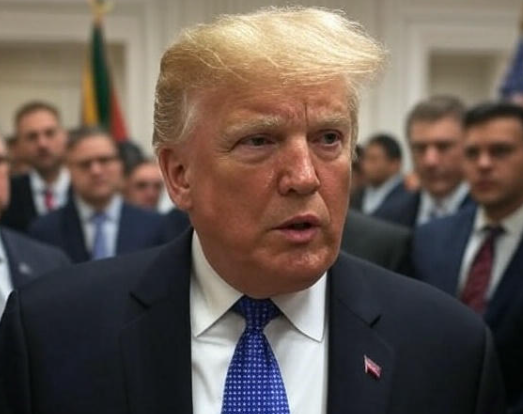Cape Town – In a significant move on April 9, 2025, US President Donald Trump announced a 90-day suspension of most new tariffs under his “reciprocal” trade policy, following appeals from over 75 countries.
However, he simultaneously increased tariffs on Chinese imports to 125%, citing Beijing’s lack of respect for global markets.
“Based on the lack of respect that China has shown to the World’s Markets, I am hereby raising the Tariff charged to China by the United States of America to 125%, effective immediately,” he wrote on his Truth Social account.
“At some point, hopefully in the near future, China will realize that the days of ripping off the U.S.A., and other Countries, is no longer sustainable or acceptable.
Based on the lack of respect that China has shown to the World’s Markets, I am hereby raising the Tariff charged to China by the United States of America to 125%, effective immediately. At some point, hopefully in the near future, China will realize that the days of ripping off…
— Donald J. Trump Posts From His Truth Social (@TrumpDailyPosts) April 9, 2025
“Conversely, and based on the fact that more than 75 Countries have called Representatives of the United States, including the Departments of Commerce, Treasury, and the USTR, to negotiate a solution to the subjects being discussed relative to Trade, Trade Barriers, Tariffs, Currency Manipulation, and Non Monetary Tariffs, and that these Countries have not, at my strong suggestion, retaliated in any way, shape, or form against the United States, I have authorized a 90 day PAUSE, and a substantially lowered Reciprocal Tariff during this period, of 10%, also effective immediately. Thank you for your attention to this matter!.”
This policy shift has immediate ramifications for global trade dynamics, particularly for countries like South Africa that have been navigating the complexities of international tariffs.
South Africa, as a member of the African Growth and Opportunity Act (AGOA), has historically benefited from preferential trade terms with the US.
ALSO READ | SA must prepare for life after Agoa – Steenhuisen
However, recent US tariff policies have raised concerns about the future of such agreements.
“Experts say the tariffs will most significantly impact African economies that are reliant on US trade, and that they will effectively override AGOA privileges,” according to Al Jazeera.
The AGOA framework allowed African countries to export duty-free to the US.
The 90-day tariff suspension offers a temporary reprieve, potentially allowing South African exporters to continue their operations without the immediate imposition of new tariffs.
However, the broader uncertainty surrounding US trade policies necessitates that South African businesses remain vigilant and adaptable.
The South African government has yet to issue an official statement regarding the latest US tariff adjustments. However, trade analysts within the country emphasise the importance of diversifying export markets and reducing reliance on any single trade partner.
This strategy aims to mitigate risks associated with sudden policy changes in major economies.
While the 90-day suspension provides a window for potential negotiations and adjustments, the substantial increase in tariffs on Chinese goods indicates a continuation of aggressive trade strategies by the US.
South African industries, particularly those involved in exports, should monitor these developments closely and consider strategic responses to safeguard their interests in the shifting global trade landscape.


